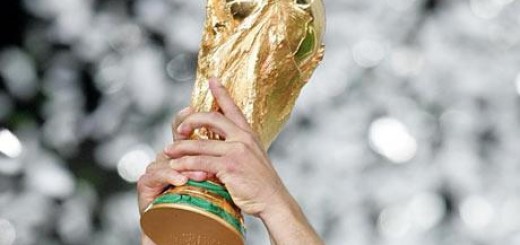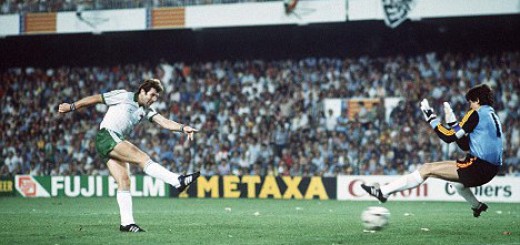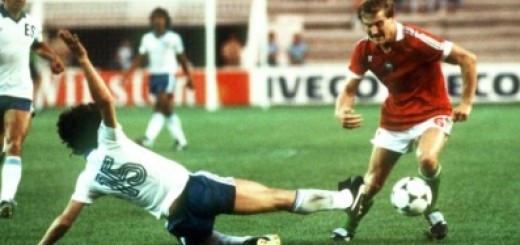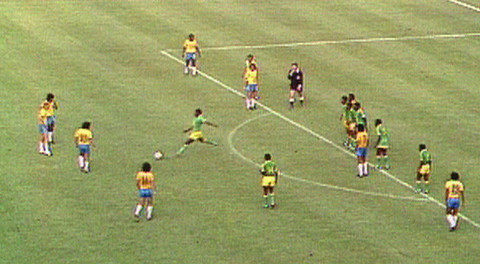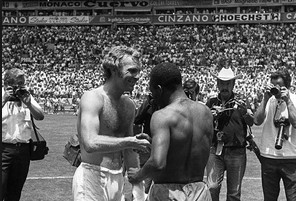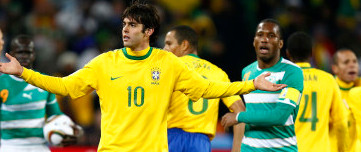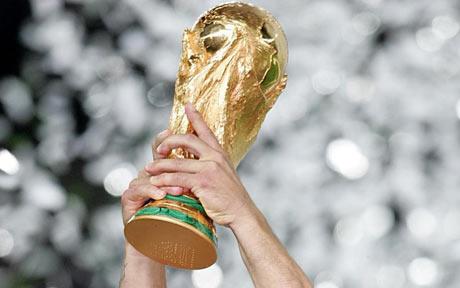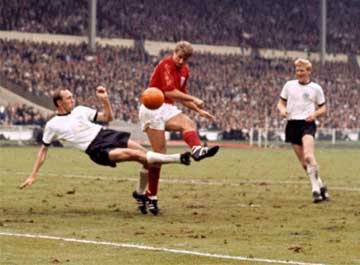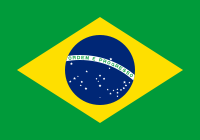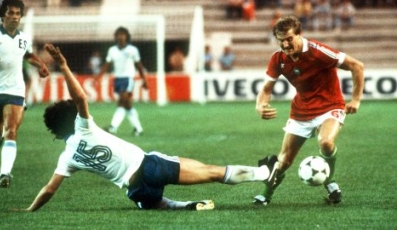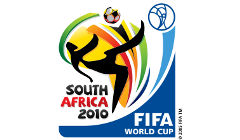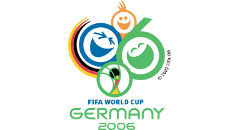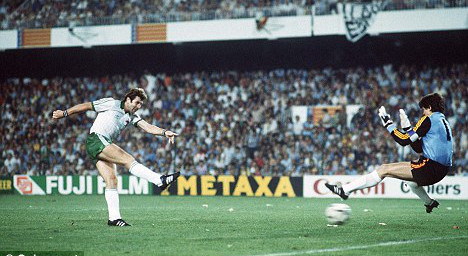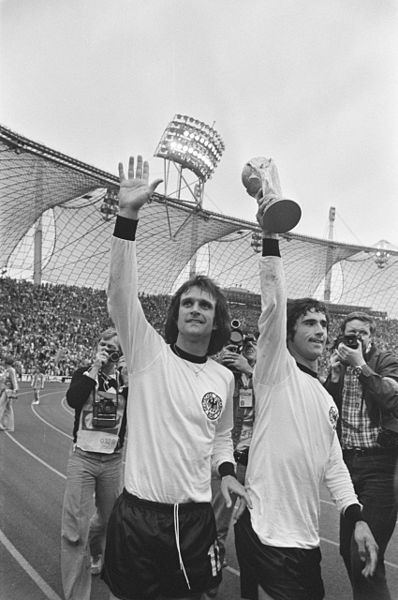There is so much at stake during each world cup that it’s maybe no surprise to see players bend the rules in order to see their team succeed. If there is a higher percentage of ungentlemanly conduct during the tournament, it’s because sides are competing at the pinnacle of the game and they just want to progress and take their one chance of playing in a World Cup final.
That’s not meant to excuse that sort of behaviour but it does go towards explaining why incidents such as these are so prevalent.
Kaka Sending Off v Ivory Coast – 2010
There are countless incidents of players feigning injury in order to get an opponent into trouble but perhaps this is the worst of all time. In 2010, Brazil and Ivory Coast met in a group match which the Africans needed to win in order to stay in with a chance of qualifying to the next phase.
Ivory Coast’s quest hadn’t gone entirely to plan however and shortly after the hour mark, Brazil had raced into a 3-0 lead courtesy of a goal from Elano and a double strike from Luis Fabiano. The African side had pulled one back through Didier Drogba before the most shocking moment of the game followed on 88 minutes.
Ivory Coast defender Kader Keita ran towards Kaka with his eye off the ball. The Brazilian had turned the other way and the two men collided in a simple accident. However, the Ivorian fell down clutching his face and referee Stephane Lannoy reached for his red card.
One look at the incident shows that the decision was ridiculous and although Kaka hoped it would be overturned, he found himself sitting out the next game against Portugal.
Brazilian coach Dunga added,
“The player who commits the foul escapes the yellow card, I have to congratulate him for that.
“It was a totally unjustified dismissal of Kaka, he was fouled and yet he was punished.”
Rivaldo feigns injury – 2002
The World Cup of 2002 was punctuated by poor refereeing decisions and perhaps that’s why Brazil’s Rivaldo felt that he could coerce the officials into getting an opponent sent off. If that was the case, his strategy worked as it led to a crucial red card in a group match with Turkey.
Brazil would go on to win the tournament but were far from their best as they opened their campaign against a resolute Turkish side. First games in any tournament are vital but it was Turkey who took the lead in first half injury time through Hasan Sas.
The Brazilians struggled to exert their superior quality but were able to draw level when Ronaldo scored on 50 minutes. From there, the tie was marked by the controversial actions of attacking midfielder Rivaldo. The Barcelona man had converted a debatable, late penalty when his side were awarded a corner. Rivaldo went across to take it but with his team holding the most slender of leads, he began to waste time.
In a moment of frustration, Turkish defender Hakan Unsal kicked the loose ball towards the corner flag where it hit Rivaldo on the top of the legs. There was no great force in the kick but the Brazilian went down poleaxed and proceeded to writhe in agony, clutching his face.
The officials sadly fell for it and Unsal was dismissed while retrospective action by the game’s governing body handed Rivaldo a mere £1,000 fine.
“I do not condone or approve of Unsal’s action but the Brazilian held his head and went down like he was having a brain haemorrhage,” said President of the Turkish FA Haluk Alusoy.
After the game however, Rivaldo was seemingly unrepentant.
“I was glad to see the red card,” he said.
“Creative players must be able to express themselves if football is to stay a beautiful game. There is too much foul play and violence in football. It doesn’t matter where the ball hit me. It was only the intent that mattered.”
Gianfranco Zola’s red card v Nigeria – 1994
Italy eventually made it to the final of the 1994 World Cup but they struggled to get past Nigeria in the second round, eventually edging out their African opponents after extra time. It didn’t help the Italian’s cause that they were down to ten men after 76 minutes in another clear example of poor refereeing.
Gianfranco Zola had patiently waited for his chance, sitting among the substitutes as his team scraped through the group stages but with his side down by a goal to nil against the Nigerians in the next phase, the forward was introduced with 15 minutes of normal time remaining.
Sadly for the former Chelsea and Parma man, it was to be a brief stay and just minutes after his introduction, he was shown a straight red card for a very innocuous challenge on Augustine Eguavoen.
Some say it was a case of Karma in action as Zola had produced a blatant dive just seconds earlier. Whatever the case, the player reacted badly to the decision, pleading with the referee before taking his frustration out on an advertising board. It was a sad end to Zola’s World Cup career as the ban meant that he would not feature in the tournament again and he retired from international football after being overlooked for the 1998 squad that travelled to France.
A classic Jurgen Klinsmann dive from the 1990 World Cup final
When German striker Jurgen Klinsmann signed for Tottenham in 1994, he played up to his reputation for diving. His first goal in a 4-3 win over Sheffield Wednesday was accompanied by a goal celebration that featured a headlong slide into the pitch and the club had a new folk hero.
The centre forward always felt that the reputation was an unfair one but there’s no doubt that his actions in the 1990 World Cup final are partly to blame for the receipt of that tag. Germany lined up against Argentina in a repeat of the final from 1986 and were out to exact revenge for their defeat.
Like many of the games in the 1990 tournament, this was a dour and fairly cynical affair but Klinsmann produced the real moment of controversy just after the hour mark. As the German took the ball down the wing Argentina’s Pedro Monzon, who had only been introduced as a second half substitute, took him out with an ill timed lunge.
It was undoubtedly a reckless tackle but many argue that Monzon would not have received a red card if Klinsmann hadn’t made the most of the foul. The German seemed to jump and twist in the air before crashing to earth and writhing around in agony.
The Argentine defender became the first player ever to be sent off with a red card in a World Cup final but he was joined by his team mate Gustavo Dezotti who saw red after conceding the late, and very debatable penalty that saw Germany take the trophy.
Diego Simeone gets David Beckham into trouble – 1998
At the end of the Champions League final of 2014, Atletico Madrid boss Diego Simeone found himself in deep trouble after reacting badly to his side’s defeat. However, the Argentinian was no stranger to controversial incidents as those who remember his role in a famous sending off will testify.
These days, David Beckham is regarded as something of a deity by English fans but there was a time when supporters of the national side were burning his effigy in the street. The young Manchester United player took to the field in a round of 16 match against Argentina and played his part as his side went in at half time with the score at 2-2.
It had been an entertaining first period and the match was delicately poised until Beckham’s indiscretion, early in the second period. After being fouled by Argentine defender Simeone, he launched a petulant flick in his opponent’s direction. This was another instance where a red card was probably the right decision but Simeone made the most of things to ensure that there was no doubt in the referee’s mind.
“I took advantage,’ Simeone admitted much later. “I think anyone would have done so in just the same way.”
“Simeone went down as if he’d been shot,” Beckham countered. “My first thought was, “I’ve made a big mistake here.”‘
Laurent Blanc’s semi final heartbreak
France won the 1998 World Cup on home soil but were expected to struggle in the final after losing their first choice centre half. Laurent Blanc was to suffer the heartbreak after receiving a red card in the semi against Croatia and those at the time were puzzled at his dismissal.
The home nation weren’t always convincing as they progressed through the group stages but France found their form in the knockouts and some impressive results saw them facing the Croatians for the right to play mighty Brazil in the final. It was a tight match – Croatia took a 46th minute lead through Davor Suker but two goals from Lilian Thuram saw the French edge ahead.
With 14 minutes left on the clock, France had a free kick out on the left wing. It was swung in but seemed to go out harmlessly for a free kick before spectators’ attention was drawn to defender Slaven Bilic writhing on the floor.
In the tussle before the set piece, Blanc and Bilic had been involved in a pushing match near the penalty spot before the Croatian fell down clutching his face. TV replays showed that the Frenchman had indeed pushed his hand into Bilic’s face but the reaction could charitably be described as ‘theatrical’.
Bilic was slated across the globe and this was another case where his unrepentant comments after the affair only served to make things worse.
“I panicked and collapsed,” the Croatian told the French Press in 2011. “Why did I panic? Because only one thing mattered; not to get a yellow card because I would have been suspended since taking a booking against Romania in the previous round.
“I’m sorry that Laurent missed the final, genuinely, but the one to blame is him.”
Surprisingly, Blanc has so far resisted the temptation to condemn his opponents’ actions, despite the fact that it cost him the chance to play in the biggest match of his career.
“It is entirely my fault,” he told L’Equipe.
Blanc watched from the sidelines as Frank Lebouef took his place and France beat the Brazilians by three goals to nil. He has refused to put the blame on the head of Slaven Bilic but there are plenty in football who do.
Senegal and Uruguay exchange dives 2002
Senegal made a positive impression on the 2002 World Cup after beating holders France in their opening game. That result meant that the Africans needed just a draw against Uruguay to progress to the knockouts and while they achieved just that, the 3-3 result was packed with controversy.
Referee Jan Wegereef from the Netherlands handed out 12 yellow cards in the game and had a hand in the opening goal when Senegalese striker El-Hadji Diouf went down in the box. Replays showed no contact from the keeper but Senegal were 1-0 up and on their way to the round of 16.
An entertaining game followed until just before the end when Wegereef awarded another erroneous spot kick to the Uruguayans. Whether the Dutch official was merely making things even is open to conjecture but after this performance, Wegereef wasn’t seen again at the tournament.
Sadly, fake injuries and dodgy red cards are all part of the game these days and you can be certain that we will soon see another case of a player bending the rules to give his side an advantage. Instances such as these are impossible to ignore but in 2014, the quality of the teams on show means that the World Cup should be remembered for all the right reasons.





